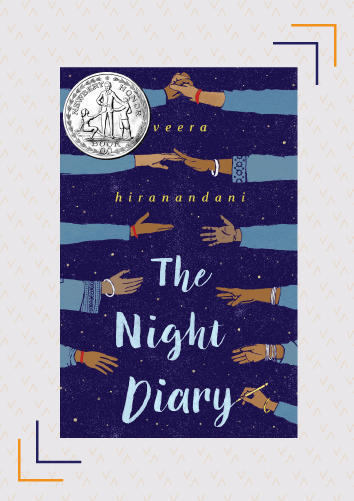

Nisha and her family become refugees and embark on a dangerous journey to reach their new home on the other side of the border. When the area of India that Nisha lives in becomes Pakistan, she and her family must flee. Nisha’s mother (who has passed away) was Muslim and her father is Hindu. The year is 1947 and Nisha discovers that while some people are celebrating India’s independence from Britain, her family has little to rejoice in. Nisha is shy and struggles to talk with others, hence she finds solace in “sharing” her words in her diary. Nisha receives a diary on her 12th birthday, a safe space for her to record her thoughts and feelings. Themes: family, belonging, identity, social justice Regional/Cultural focus: India and Pakistan (1947) She cleverly weaves fact and fiction together as she shares the complexity of Pakistan’s partition after India is newly freed from Britain.

I recently read The Night Diary by Veera Hiranandani and not only fell in love with the voice of 12 year old Nisha who narrates the story but also with Hiranandani’s talented writing skills. However, the history of India’s independence from Britain in 1947 and the complications that resulted in the division/creation of two countries (Pakistan and India) has remained a murky mess in my understanding of India’s past. I have traveled to India consecutively over the past three years and I have learned a great deal about Indian culture and history from texts, conversation and films. Historical fiction gifts us the opportunity to meet and connect with characters from all over the world during a specific moment in history, learn about their lives (joys and struggles) and experience that very sweet spot in literature where fact and fiction mingle. However the content of historical fiction is often easier to contemplate and relate to than non-fiction. Our brains like to categorize…good and bad, young and old, fact and fiction, etc, hence the concept of historical fiction is difficult to grasp for many young readers.

The word history is complex in nature, his-story (insert eye roll and a deep sigh here), which the Merriam-Webster Dictionary defines first as:Ģ: a chronological record of significant events (such as those affecting a nation or institution) often including an explanation of their causes We believe history to be true and fiction to be a concept or idea invented by the imagination.

The term historical fiction may sound like an oxymoron.


 0 kommentar(er)
0 kommentar(er)
